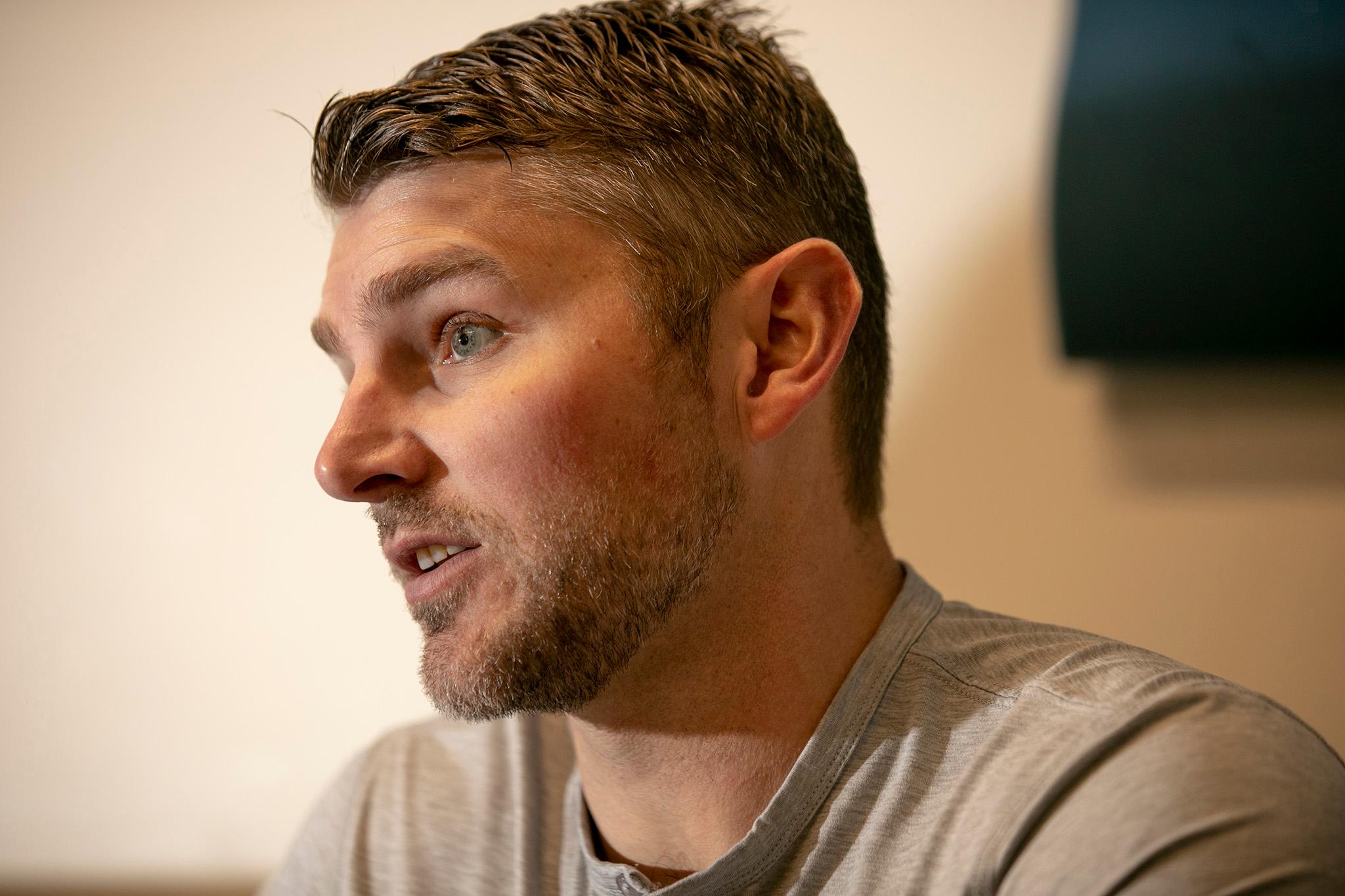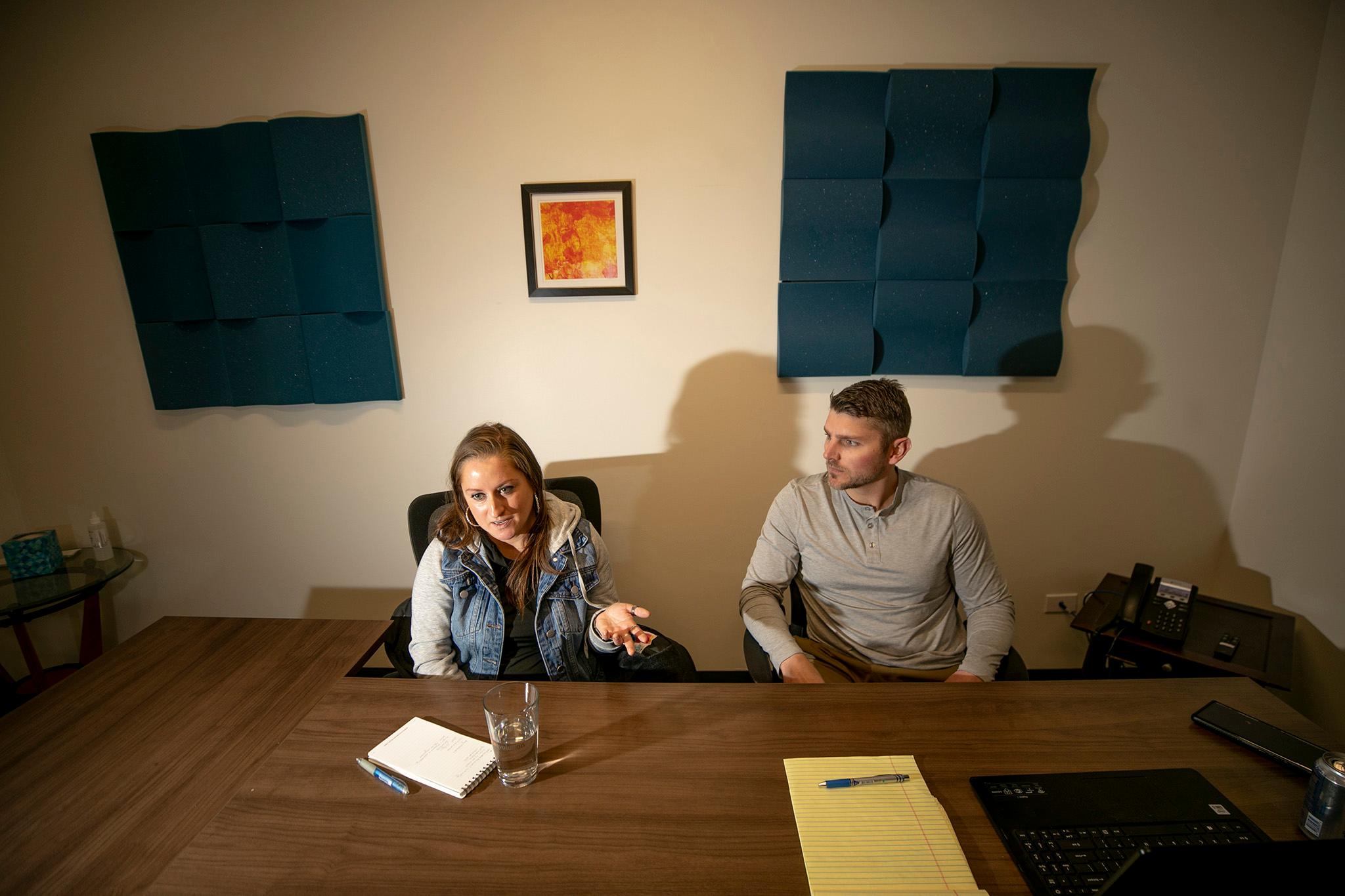The Justice for the People Legal Center doesn't yet have a website, but the new nonprofit law firm is already inundated with requests for representation, largely for cases related to housing and labor issues.
The nonprofit is the product of years of collaboration between a long-time local organizer and a lawyer who hope to bring a community organizing approach to the legal world. While Denver has plenty of public interest law firms, it's not a city known for "movement lawyering," a specific approach to law that directly partners with organizers and activists. Executive Director Dre Chiriboga-Flor and lawyer Jason Legg want that to change.
"We have to think like organizers," Chiriboga-Flor said. "We're thinking about root causes, we're not thinking about band-aids, we're not thinking about staving off evictions. All of that is important and we have trusted allies who are doing that work. But if we actually want to address root causes, we need to build so much power."
The two met a few years ago when Chiriboga-Flor was working at the economic justice nonprofit 9to5. The lawyer she was working with had recently left, and it was hard to find someone else to partner with who could make the kind of deep commitment to work with communities that organizing required. Legg showed up to an Aurora City Council meeting about the fate of a mobile home park -- a project that Chiriboga-Flor had been working on.
The two hit it off and have been working together ever since. This past fall, they took the leap to launch their own organization. With their years of work with local communities, they were immediately inundated with potential cases. Today, they are planning a number of class-action suits and potential legislation around tenants rights.
Both Chiriboga-Flor and Legg have personal connections to labor and housing work.
After college, Chiriboga-Flor worked for a labor union in the Dominican Republic, organizing women in an apparel factory. Then she moved back to the U.S. and got a job in Boston at a daycare center while looking for full-time, paid organizing work. She worked largely with immigrants from Latin America, and not long after she started that job she realized that staff did not get paid for overtime work.
"That really did politicize me," she said. "I was like, 'Wow, this is illegal.' So I kind of organized the tías. We were all tías, aunties. And I sent a letter to my bosses being like, 'You can't do this.'"

Ten years ago, Chiribogo-Flor moved to Denver and started working with 9to5, helping improve transportation access, and organizing tenants and mobile home park residents. She recently helped residents at a mobile home park in Westwood secure a deal to purchase their land and avoid displacement.
Legg moved to Denver after finishing law school at Wyoming College of Law a few years ago. He grew up low-income, raised in government housing by a single parent. He moved around a lot and lived with a friend in high school. Legg saw housing insecurity firsthand when his mother experienced homelessness after he moved out of the house.
"[I] had experience with those power discrepancies as a kid," he said. "Having that lived experience as a healthy, white, straight male, I've got it a little bit more privileged than others with that kind of class issue. But that's why I wanted to do this... I wanted to weaponize myself by going to law school to do this stuff."
After taking the leap this past fall, the pair have landed a few grants and have filed about half a dozen class-action cases focused on housing and socio-economic rights.
They plan to go after landlords including junk fees in leases and eviction firms that evict residents for legal costs incurred during the process. They are continuing to work with Montevista, the mobile home park in Westwood, as the cooperative ownership model gets off the ground. They want to work with other mobile home parks to make sure landlords are following new right-to-purchase laws when parks go up for sale, and have a number of other cases related to tenants rights.
Part of their approach involves making sure that legislation meant to protect renters is actually enforced by management companies long-term.

"Sometimes those communities have rights, but they don't have the power to have those rights enforced," Legg said. "It's not a priority."
Legg and Chiriboga-Flor also hope to partner with other organizers and nonprofits on state legislation. As part of their "movement lawyering" approach, they plan to get policy ideas from community members at the outset, rather than working on a bill and then gathering community input.
The pair see themselves as bridging the gap between policy wonks and community members.
"I'm not a lawyer and that's intentional, to make sure that we're not just thinking about these sort of abstract wins, but that we're building like the leadership of residents to exponentially build power," Chiriboga-Flor said.
Long-term, Legg and Chiriboga-Flor hope to grow the movement lawyering approach in Denver and hold management companies accountable.
As the Justice for the People Legal Center gets off the ground and adds staff, the pair want to start a training program for other organizers and lawyers who want to get involved in movement lawyering.
"Training lawyers how to be movement lawyers, a big part of it is teaching them how to think like organizers," Chiriboga-Flor said.
Legg hopes that 10 years from now, landlords and management companies think twice about skirting around laws meant to protect renters.
"A goal is that bargaining power has shifted because organized tenants are a credible threat now that needs to be respected," Legg said. "Part of making them more of a credible threat is helping them organize, but then also [that's] where having legal support is necessary or helpful to their efforts, that there's an adequate legal infrastructure."
In the future, Chiriboga-Flor hopes to see more tenant unions and mobile home associations across Colorado.
"It's thinking about 'Who are our targets? And how do we destabilize them?'" she said. "We can't just think about, 'Let's just win this case.' We have to think about this bigger picture. How do we shift power from those structures into the hands of residents? Organizing 101 is our targets have addresses and names."













